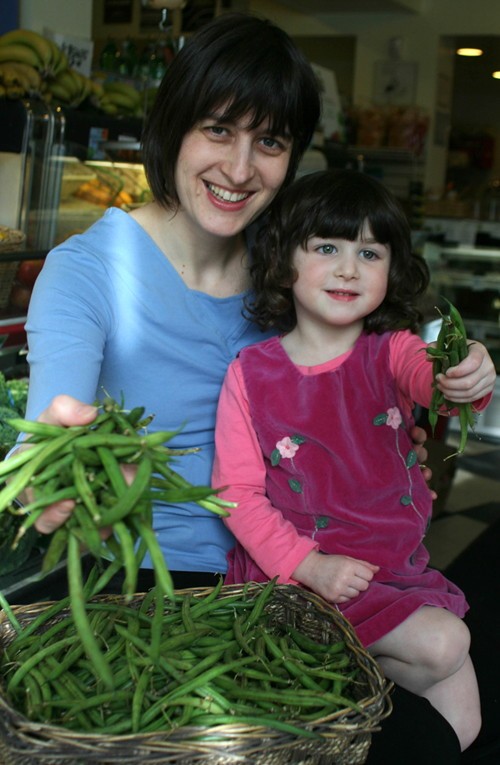New regulations for organic foods
Some farmers may opt out of producing organic products due to red tape
Some farmers may stop growing organic food this summer because of stricter upcoming national regulations. Others will have to fork out more money to adapt to the changes.
“The regulations will turn off some people who really are organic because of the cost and the paperwork,” said Julie Fine, co-ordinator of Growing Up Organic, a program with the Organic Food Council of Manitoba.
“But it will also lend legitimacy to their practice,” Fine said. “I’m very excited about the process.”
Organic food sales have increased dramatically in recent years. Statistics Canada revealed the sale of certified organic food grew 28 per cent from 2005 to 2006.
The number of certified organic farms shot up by 60 per cent over the same time as well.
As a result, the Canadian Food Inspection Agency (CFIA) will release Organic Products Regulations on June 30 in an effort to protect consumers from deceptive labeling practices.
Larry McIntosh, president and CEO of Peak of the Market, a grower-owned vegetable supplier in Manitoba, wasn’t satisfied with the original draft of the regulations.
“The draft said that if you grew organic, you couldn’t do anything else,” McIntosh said, adding many of Peak of the Market’s growers do both by ensuring a good separation between their soil and sheds.
Peak of the Market got into selling organic products five years ago, starting with potatoes and onions. They are looking to expand to squashes as more land becomes available.
McIntosh doesn’t think the certification will make any difference, as Peak of the Market’s food is certified through a program in the United States.
“It’s just a different label and a different auditing procedure,” McIntosh said, adding they’ll have to redo their packaging, which can cost upwards of tens of thousands of dollars.
All former certification standards will remain valid under the new system.
Farmers need to apply for the new national program to have their products certified organic.
“The regulations are only for interprovincial and international business,” said Valeriya Staykova, lead auditor for the Canada Organic Office (COO), a CFIA branch established six years ago.
This means the federal standard and regulation will only be available to those farmers who wish to sell their products outside of their own province.
Beyond this, Staykova said each province would be responsible for the certification and regulations within its borders.
Fine wonders why the Canadian government couldn’t regulate all of Canada. Manitoba’s own standards would mirror the national guidelines, she said, and combining it under one umbrella could then save red tape.
Currently, standards are maintained by the Technical Committee on Organic Agriculture of the Canadian General Standards Board, composed of sixty organic operators and stakeholders.
Until this year, the process has been voluntary.
“Some farmers may find there will be too many restrictions,” said Sabrina Longobardi, co-owner of EatIt.ca, an organic food store that also has an online component. “Some may say there isn’t enough.”
Longobardi said provinces might have to grow things differently because of the kind of soil and weather.
“But people will have more access to organic food,” she said.
Published in Volume 63, Number 24 of The Uniter (March 19, 2009)








